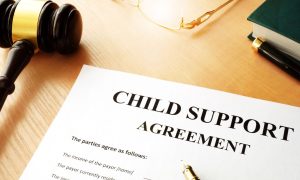Navigating the emotional turmoil of a divorce is one of life’s most challenging experiences. When the time comes to step into divorce court, what you say can significantly impact the outcome of your case. Divorce courts are not just about splitting marital assets and determining child custody—they are places where your words are weighed and evaluated. Knowing what not to say in divorce court is as important as knowing what to say. This guide takes an unconventional approach to help you understand the nuances of effective communication, especially when emotions are at their peak.
This article will walk you through statements to avoid, the importance of maintaining a calm demeanor, and how to keep your emotions in check while speaking. We will also cover practical strategies to help you stay composed, maintain respect, and ultimately leave court with your dignity intact and your case favorably heard. This isn’t just a standard “do and don’t” list—it’s a deep dive into how to navigate the divorce process while ensuring that your words don’t become a liability.
Key Principles of Effective Communication in Divorce Court
Understanding how to communicate effectively during divorce court proceedings starts with grasping a few fundamental principles. Your goal should be to present yourself as honest, composed, and respectful at all times. Here are some core principles that can guide your courtroom demeanor:
1. Clarity Over Emotion

Divorce proceedings can be emotionally charged, and it’s easy to let emotions cloud your judgment. When you’re speaking in divorce court, always aim for clarity rather than emotional depth. Keep your statements focused and directly relevant to the legal process. Remember, the court wants facts—not feelings.
Whether you are addressing property settlements, custody agreements, or financial matters, be clear and concise. A seasoned divorce attorney can guide you in preparing statements that are fact-based and devoid of excessive emotional reactions.
2. Relevance and Brevity
Lengthy explanations can often do more harm than good. Only speak about matters that are directly related to the issues at hand, such as custody disputes or asset division. Family courts are not interested in your emotional backstory unless it directly affects the matter being discussed. Divorce hearings often have a limited amount of time, and it’s crucial to use it wisely. This can help you achieve a fair outcome while keeping legal costs under control.
3. Respect Is Paramount
Respect, especially for the judge and opposing counsel, will go a long way in influencing how your case is handled. Your tone, word choice, and even body language all contribute to how respectful you appear. Respect doesn’t mean agreeing with everything but rather handling disagreements with tact. Proper courtroom etiquette demands a respectful demeanor toward everyone present—including courtroom personnel.
4. Stick to the Facts
The court relies on evidence and factual information. Stick to the facts of your case without embellishment. Being transparent and honest goes a long way in establishing credibility. Divorce trials can feel like a chess match, and it’s crucial not to let emotions push you into making dishonest statements. Factual consistency also demonstrates your parenting skills and dedication to achieving a co-parenting plan if children are involved.
Statements to Avoid in Divorce Court

Lies and Exaggerations
Lies, no matter how small, can ruin your credibility. Avoid exaggerating your spouse’s faults or fabricating incidents to gain sympathy. Courts take perjury very seriously, and being caught in a lie can lead to harsh penalties, including losing custody or losing favor with the divorce judge. No matter how tempting it might be to make your spouse look bad, always stick to the truth.
When discussing aspects like child custody or domestic violence, remember that the divorce process is guided by the principle of protecting the best interests of the children involved. If you’re dishonest, the court may take actions that adversely affect your custody arrangement or reduce your parenting time.
Name-calling and Personal Attacks
Name-calling is a common, yet incredibly harmful, mistake many people make in divorce court. Statements like “He’s a deadbeat” or “She’s a terrible mother” show immaturity and a lack of respect. Judges want to see you rise above personal animosity and focus on what’s in the best interest of all parties involved, particularly the children. This is especially important in custody hearings, where the judge evaluates each parent’s emotional stability and ability to foster a healthy environment for the children.
Disrespectful Language Towards the Judge
A courtroom is a formal environment where the judge’s authority must be respected. Any display of disrespect towards the judge can hurt your case. Address the judge appropriately, avoid interrupting, and keep your tone polite. Disrespectful remarks such as, “You just don’t understand my situation” or “This whole system is rigged,” will only harm your credibility and diminish your standing in the court. Proper courtroom etiquette means using titles such as “Your Honor” and speaking only when appropriate.
Absolutes and Overgeneralizations
Avoid statements like “He never helps with the children” or “She always spends recklessly.” Such overgeneralizations can weaken your credibility, as absolutes are rarely true and can easily be disproven. Instead, be specific: “He missed four school meetings in the past six months” or “She overspent our budget by $1,200 last month.”
These types of absolutes are particularly damaging in child custody disputes, where the judge is looking for facts that impact a child’s well-being. A seasoned divorce attorney will advise you to focus on specific incidents rather than broad, exaggerated claims.
Redundant Statements
Repeating yourself or bringing up issues that the court has already heard can be seen as wasting the court’s time. It shows that you may not be listening or that you’re attempting to add undue emphasis on issues that may not hold weight. Stick to concise and impactful points that add value to your case. Repetition may also cause the divorce judge to lose patience, especially in contested divorce scenarios, where time is limited, and numerous complex issues need resolution.
The Impact of Emotional Statements
Expressing Anger and Frustration
It’s normal to feel anger and frustration during a divorce, but expressing these emotions in court can backfire. Statements like, “I can’t believe I even married this person” or “I’m so fed up with all of this” add no value to the proceedings and simply paint you as emotionally volatile. Judges prefer to see someone who can keep their composure under pressure—it reflects maturity, reliability, and parenting skills, which can influence child custody agreements.
When discussing parenting plans or custody mediation, displaying anger can lead the court to question your ability to co-parent effectively. Anger management may be something you need to consider if you find yourself frequently displaying anger in the courtroom.
Showing Indifference
Indifference can also work against you. Comments like “I don’t care what happens” or “It doesn’t matter to me” may be seen as a lack of interest in the proceedings, particularly in custody disputes. The judge wants to see that you are fully engaged and committed to the outcome, especially when children are involved. Apathy may result in the court questioning whether you are fit to make decisions regarding parenting time or other crucial aspects of your child’s life.
Importance of Respectful Dialogue
Maintaining respectful dialogue is crucial in divorce court. A respectful tone not only helps convey your points clearly but also helps build your credibility with the judge. Here are a few guidelines to ensure your dialogue remains respectful:
- Listen Carefully: It’s easy to miss key information when you’re too focused on your own narrative. Listen carefully to both your attorney and the opposing party to make sure your responses are appropriate and relevant. Listening shows that you are interested in a fair outcome and are willing to participate constructively in the divorce mediation process.
- Be Mindful of Your Tone: Avoid raising your voice, making snide remarks, or showing sarcasm. The tone in which you speak can affect how your statements are perceived by the divorce judge. Family law is often nuanced, and demonstrating control over your emotional reactions can work in your favor.
Preparing Your Statements
Thoughtful Reflection
Before stepping into the courtroom, spend time reflecting on the key points you want to convey. Think about what is most important to the judge, rather than what is most important to you emotionally. This kind of reflection will help keep your statements focused and effective. A divorce attorney with extensive experience in family law will encourage you to prioritize issues that affect children and financial stability rather than petty grievances.
If you’re dealing with complex issues such as property settlements or child custody disputes, taking the time to thoughtfully prepare can help avoid common pitfalls. This can also help you align your statements with what your seasoned divorce attorney believes will achieve a favorable outcome.
Authenticity in Speech
Authenticity goes a long way in divorce court. Judges can often sense when someone is being deceitful or overly manipulative. Be honest, and let your genuine concerns shine through without exaggeration or deceit. This is particularly important in child custody disputes, where the honesty of both parents can significantly influence the court’s custody ruling.
Strategies for Staying Calm
Breathing Techniques
One of the simplest ways to stay calm during your divorce trial or custody hearings is to focus on your breathing. Deep breathing techniques can help slow down your heart rate and keep your emotions in check. When you feel the pressure mounting, take a few seconds to breathe deeply and recalibrate. Your divorce lawyer may even recommend practicing breathing exercises before your day in divorce court.
Practice Mindfulness
Mindfulness exercises can help you stay focused on the present moment rather than getting lost in negative thoughts about your spouse or the outcomes. Practice being fully present, which can help you communicate more effectively and reduce impulsive reactions. This is especially useful in courtroom battles where keeping your composure could mean the difference between a favorable outcome and a setback.
Rely on Your Attorney

It’s important to trust that your attorney is there to represent your best interests. If you feel overwhelmed or unsure of what to say, take a moment to consult with your lawyer before speaking. This can help prevent you from making statements that could harm your case. Experienced divorce lawyers understand the legal intricacies of family courts and can guide you effectively.
Consulting your attorney for advice before speaking is particularly important during cross-examination, where opposing counsel may try to provoke an emotional reaction. Divorce lawyers are well-versed in such sneaky divorce tactics and can prepare you to handle challenging questions with grace and composure.
Conclusion
Knowing what not to say in divorce court can make a significant difference in the outcome of your case. From avoiding lies and exaggerations to keeping your emotions in check, this guide has provided a comprehensive look at the communication pitfalls that can trip you up during a divorce. Remember, your behavior and words in court are often the most important evidence the judge will see. By maintaining respect, focusing on clarity, and staying calm, you can present yourself in the best possible light during one of life’s most difficult transitions.
A favorable outcome in a divorce application, whether it’s related to child custody, property settlements, or co-parenting plans, depends largely on your ability to communicate effectively and respectfully. By working closely with an experienced family law attorney, you can navigate the divorce process with confidence, ensuring your words don’t become a liability.
ALSO READ: Can a Tenant Sue a Landlord for Defamation of Character?
FAQs
Yes, displaying anger in court can negatively impact how the judge views your ability to co-parent, which could affect custody decisions.
No, lying in court can lead to serious consequences, including perjury charges and loss of credibility, regardless of whether your spouse is being truthful.
Always follow your lawyer’s guidance. In most cases, you should address the judge directly when prompted but keep your statements brief and respectful.
Yes, these types of statements can make you seem unreliable because they are often not entirely true and can be easily disproven.
Practice deep breathing, mindfulness, and always pause before responding. Relying on your attorney can also help you remain calm.





